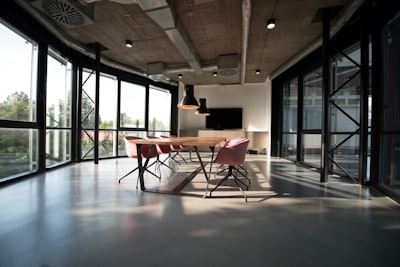Commercial property insurance is designed to provide compensation for damage or loss to a business’ physical property. Purchasing a commercial property insurance policy may seem simple, but there is more to it than simply buying a policy. No two businesses are the same when it comes to insurance. Your business’ property may be more expensive than another’s, which means you may need higher limits of property insurance. 
Property Coverage Limits and Exclusions
It’s important to keep in mind the common exclusions on property insurance policies. Additional coverage can be added for some of these exclusions. Floods and earthquakes, for example, are commonly not covered under property insurance but can be covered under additional policies.
There are some items that are commonly excluded, as well. Commercial property insurance may not cover the physical ground around the property, fences, signs and other outdoor features not physically attached to the building.
Calculating Replacement Cost Value
There are two main types of property insurance policies: actual cash value and replacement cost value policies. Most commercial property insurance policies are compensated with replacement cost value. This means that the compensation the policyholder will receive after filing a claim will not account for depreciation. Instead, a replacement cost value policy will provide compensation for lost or damaged items for replacements of equal or similar value.
Add the replacement cost value of your business’ insured property to find out the minimum amount of coverage you need. The replacement cost value of the business’ items aren’t the only costs that should be considered, however.
Calculating Total Insurable Value
Total insurable value is the total sum of the replacement cost value of the business’ property. This includes buildings, equipment, tools, and more at each location owned by the business.
The value of the business’ items isn’t the only thing that should be considered, but the cost of completely rebuilding the property in case of a disaster. This includes flooring, fixtures, labor costs, etc.
Additional Types of Property Insurance
Commercial property insurance isn’t the only type of insurance your business can use. To protect the business’ physical assets, many businessowners also carry:
- Equipment Breakdown Insurance: Equipment breakdown insurance provides compensation if important equipment owned by the business suddenly breakdown. This does not generally cover normal wear and tear or negligence. While it’s important to keep all equipment up to date, it’s also useful to have insurance in case something unexpected causes your business’ important equipment to stop working.
- Commercial Auto Insurance: Commercial auto insurance covers vehicles owned and used by the business with coverage similar to that available to personal auto insurance. This includes comprehensive coverage, collision coverage, liability, medical payments, uninsured motorist and more.
- Inland Marine Insurance: Inland marine insurance helps protect the business’ items and equipment while in transport.
- Flood Insurance: Floods are not generally covered under property insurance policies. You can purchase a separate flood insurance policy to compensate for damages due to sudden and unexpected flooding. You can also purchase a separate policy to cover against earthquakes.
- Crime Insurance: Crime insurance provides compensation to the business in the unfortunate incident that an employee steals from the business.
- Policy Floaters: There are many types of policy floaters available to cover the gaps left by basic property insurance policies. There are floaters for contractors equipment, electronic items, artwork or other items related to the fine arts, and more.
There are different insurance policies geared specifically for certain industries, such as policies that protect produce and spoiled food.
How Much is Commercial Property Insurance?
The cost of commercial property insurance varies depending on several factors, including the business’ location, credit score, claims history, size, industry, coverage limits and the value of the insured items. Businesses may pay around $755 a year ($63 a month) for commercial property insurance. Rates may also change if you choose to bundle this coverage with other property insurance coverages and general liability. The average cost of a business owners’ policy, which combines commercial property insurance and general liability, is around $1,200 a year, which can be cheaper than buying each coverage individually.